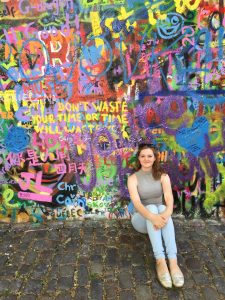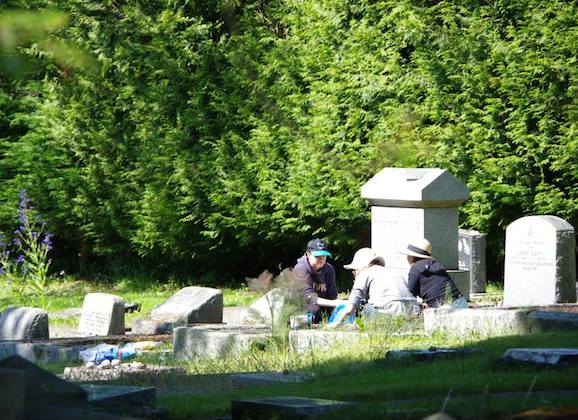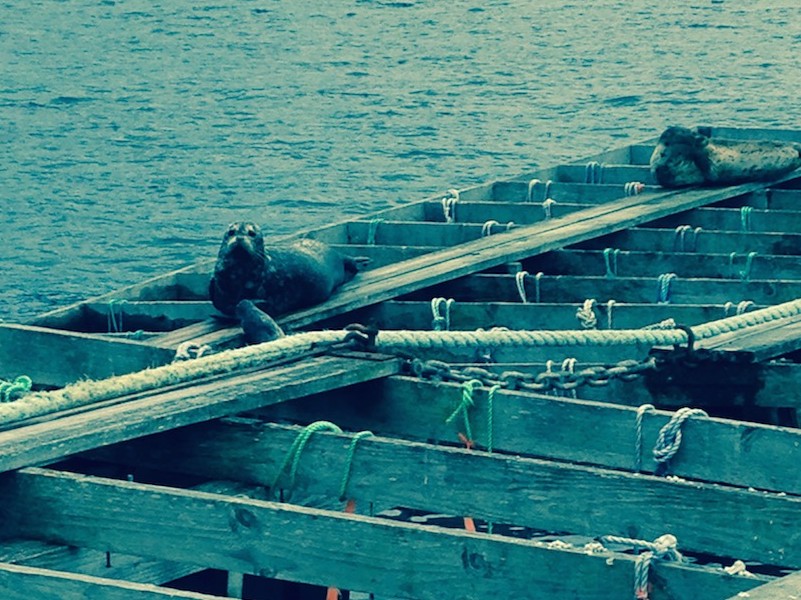Learning about Present Pasts: the Holocaust Field School Experience
Guest post by Mariana Gallegos Dupuis
 During this past May, I went on the Holocaust I-witness Field School, a Germanics studies course offered at UVic through which students travel around Central Europe, studying first hand how the Holocaust is remembered.
During this past May, I went on the Holocaust I-witness Field School, a Germanics studies course offered at UVic through which students travel around Central Europe, studying first hand how the Holocaust is remembered.
Our group spent one intensive week at UVic before visiting Berlin, Krakow, Vienna, Linz, and Budapest. My expectations were running high with suspense and anticipation, since leading up to the trip we were told repeatedly how we were about to embark on a life-changing journey. What does that even mean, a life-changing journey?
Looking back a few months after the field school, I can attest that the course can change your outlook on life, but only if you let it. Don’t just picture a photomontage of our group bonding while drinking disproportionately sized German beers. There was bonding over drinks for sure. Yet, the field school is different from just travelling around Europe in that it is an incredibly opportunity to “play” historian, psychologist, lawyer, social worker or journalist about something real and incredibly important. In order to get the most out of the course, you have to be curious and proactively ask questions about how about the Holocaust and how Europe has dealt with its memory.
Here is an example from our first full day in Krakow; we had a tour guide I don’t think any of us will ever forget, because she had many controversial opinions. I asked her why she kept using the word “German” interchangeably with Nazi.
She told me that she intentionally used that word German because she wants people to realize that their whole society was complicit in electing Hitler, World War II, and the Holocaust. She then asked me what word I would use.
I related how George Pal, the a Holocaust survivor we had met leading up to the trip, had told our class that he is careful to use the word Nazis because “not all Germans were Nazis, and not all Nazis were German.” To my surprise, she readily agreed, and told me that when she had Austrian tour groups she was also careful to use the word Nazi to include their national complicity.
Her answer shows how raw the history of the Holocaust still is. When she encounters people of nationalities that were part of the Axis powers in her daily work life, she actively seeks to remind them of their past through her language.
The field school enables exactly this kind of interaction between students and the “mediators of history.” I had unforgettable conversations with Holocaust survivors, tour guides, creators of holocaust memorials, and Jews who preserve the remnants of Jewish life in countries that underwent the Holocaust.
What was life changing about the field school for me is that by interacting with the rawness of the history of the Holocaust I become much more aware of the present. One journalist summed it all up wonderfully with a metaphor: the importance remembering the Holocaust is akin to “the coin carried by an alcoholic, to remind him not to drink. To remember is to remain aware that we, as humans, balance on the very lip of the unspeakable; always far closer to toppling than we might wish to admit. All of us, everywhere, all the time.”

The remnants of the old Jewish district of the small Polish town called Tarnow. The arch left in the middle of the photograph is the only thing remaining from the town’s synagogue, which was burnt down by the Nazi regime.

A Jewish cemetery’s wall in Krakow constructed from the remains of Jewish tombstones that were taken and repurposed by the Nazis.




What an amazing experience UVIC offered these students.